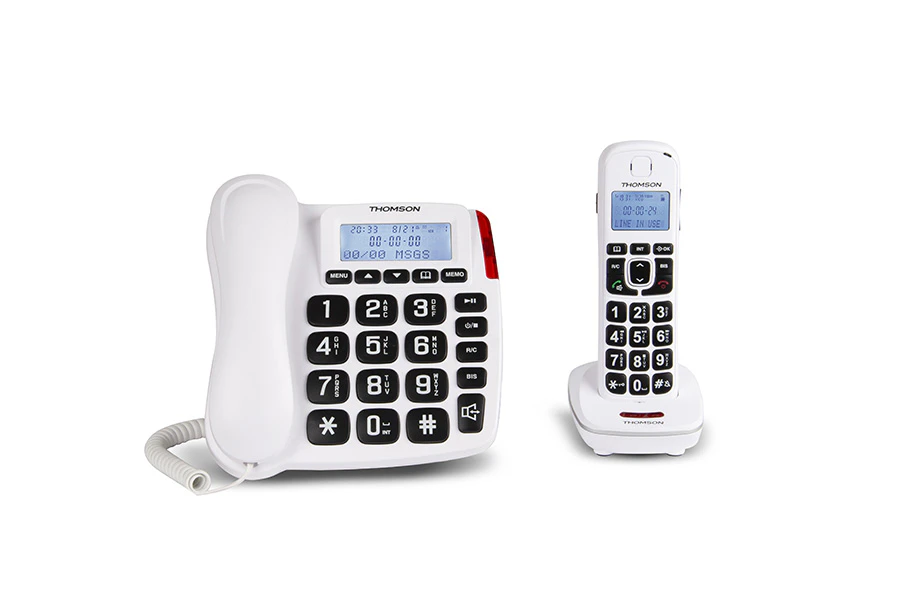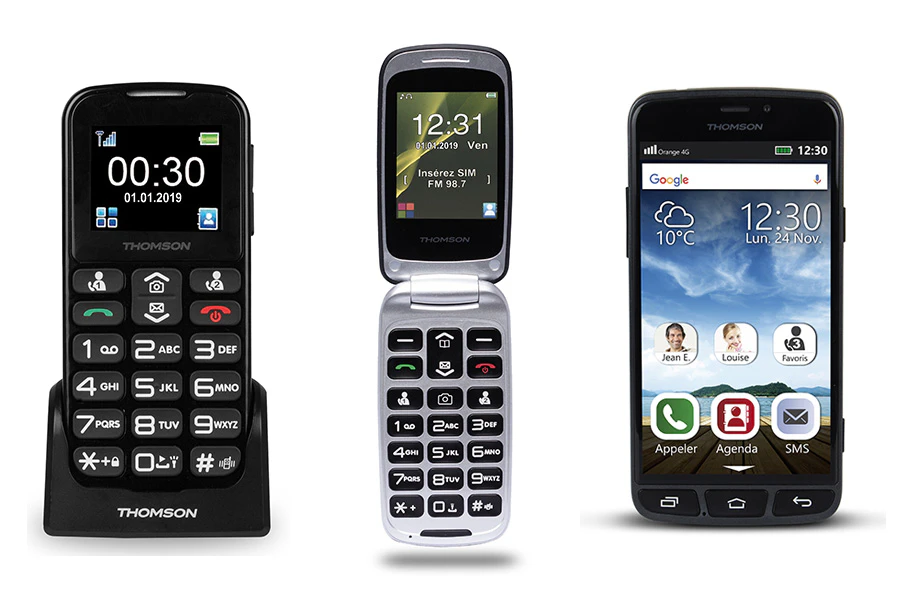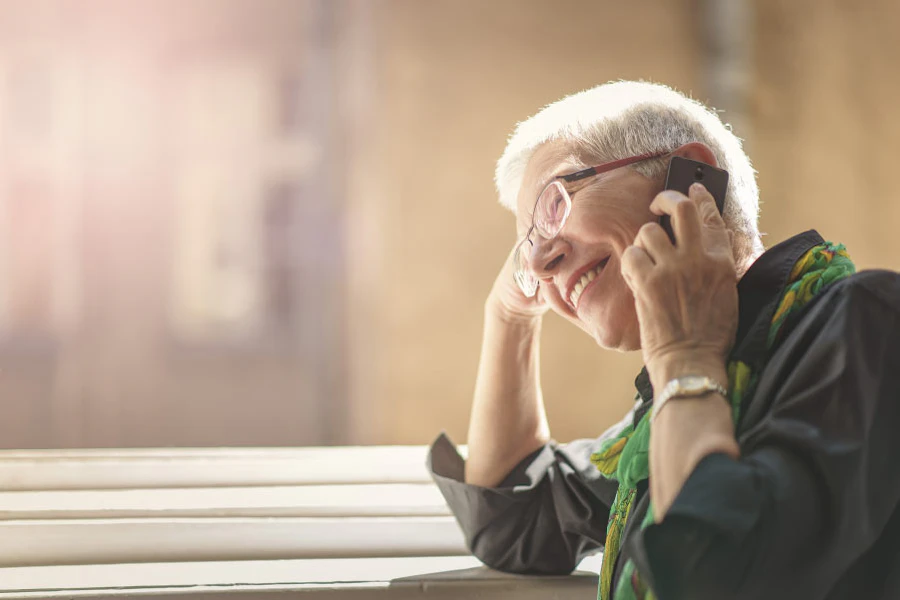
TELEPHONY
Keeping in touch with seniors is very important
Both to have news and to strengthen ties, but also to be promptly notified in the event of a problem. Therefore it is necessary that they have at least one telephone. But beware: not just any! There have long been residential phones and smartphones that are suitable for the elderly, and the not so old people, who may have difficulty understanding how to use this type of device. Choosing well is the first step in ensuring that someone who is not necessarily used to technology is comfortable with the phone that is intended for them.
Indeed, it is sometimes difficult to understand it when you are part of a generation that is immersed in the mobile world on a daily basis, but seniors are far from being all that familiar with the applications and other advanced features of phones. For some, the residential phone remains to be preferred while others may find an interest in a mobile telephone. The combination of the two is ideal when possible. It remains to be seen how to choose the right one.

The residential phone: the perfect home assistant.
Because it is associated with the home and therefore with comfort, the residential phone is a device that is generally reassuring for seniors, who know how it works. It can be worthwhile to choose a model that suits their needs.
Which selection criteria?
Among the key points to be taken into account, a screen that offers clear visibility of the number calling, but also large keys for typing easily the correspondent's number. The function to store different numbers is also welcome. These are criteria that are useful for quickly identifying residential phones suitable for seniors.
Other features should be taken into consideration. The residential phone must have an easily adjustable sound volume and, ideally, it must be able to be connected to a hearing aid device. Another very useful function is the SOS button, which allows you to call one or more emergency numbers in the event of a fall, for example.
Finally, to go even further, it is possible to choose a model combined with an emergency medallion connected to the base of the residential phone. This medallion is intended to be worn by the senior, who only has to press the emergency button to call for help in case of need. A telephone meeting all the criteria mentioned is a device that is both secure and easy to use. This type of residential phone is a wise choice for seniors.
The mobile phone: a daily supplement
Being a senior does not mean that you do not leave your home: in this context, it is useful, if not important, to have a mobile phone in addition to the residential phone. For seniors, two categories of cell phones stand out: the traditional, compact mobile phone whose uses are mainly limited to making and receiving calls and Text Messages, and the smartphone, which provides access to additional functions.
Mobile phone or smartphone?
The simple mobile phone is the preferred model for seniors who do not have a tech-savvy approach: the main thing here is that they can call comfortably, wherever they are. It is important to choose a model with large keys and a color screen large enough for an optimized data display. It is also ideal to opt for a mobile phone with an SOS button, with properties similar to those of the residential home phone. The Thomson Serea 51 mobile meets these different criteria. This is a so-called monobloc model, which has the advantage of being delivered with a charging base. If you prefer to opt for a clamshell model, which effectively protects the screen which is larger by the way, the Thomson Serea 63 is a good choice. The battery life of these models is several days, which is an added bonus.
There are also smartphones for seniors: here, no physical keyboard, but a large color touch screen that offers an optimized display with large areas that can be manipulated with your fingertips. These devices are based on a simplified version of Android, which goes to the basics, but offers some additional features such as access to a camera or social networks. These models enjoy a longer battery life than traditional smartphones, but they still need to be recharged more regularly than traditional mobile phones. Thomson mainly offers one model of smartphones for seniors that meets these different criteria: The Thomson Serea 405 displays properties such as a SOS emergency call button, two cameras, hands-free function but it also comes with a very easy-to-use charging base.


Simplicity and autonomy, the main criteria for a good senior's phone
It will be understood that there are different types of phones intended for seniors: residential, mobile, with or without a flap and touch screen ... the main thing is to ensure that the model or models chosen correspond to the specific needs of the person. Not only must he/she be able to use the phone independently, but also to know how to recharge it and, above all, to feel safe with it. These are all points to keep in mind when making your choice.

 Denmark (Danish)
Denmark (Danish)  Deutschland (Deutsch)
Deutschland (Deutsch)  España (Español)
España (Español)  France (Français)
France (Français)  Italia (Italiano)
Italia (Italiano)  Nederlands (Dutch)
Nederlands (Dutch)  Polska (Polski)
Polska (Polski)  Russia (Russian)
Russia (Russian)  Sweden (Swedish)
Sweden (Swedish)  Turkey (Turkish)
Turkey (Turkish)  Ukraine (English)
Ukraine (English)  United Kingdom (English)
United Kingdom (English)  USA (English)
USA (English)  China (Chinese)
China (Chinese)  Hong Kong (English)
Hong Kong (English)  India (English)
India (English)  Indonesia (English)
Indonesia (English)  Lebanon (English)
Lebanon (English)  Saudi Arabia (English)
Saudi Arabia (English)  Thailand (English)
Thailand (English)  Vietnam (English)
Vietnam (English)  Algeria (Français)
Algeria (Français)  Egypt (English)
Egypt (English)  Australia (English)
Australia (English)